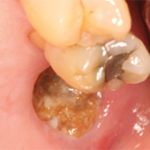Safety
The Food and Drug Administration (FDA) has updated the Warnings and Precautions sections of prescribing information for the bisphosphonate agents, including risedronate sodium tablets and combinations with calcium (Actonel/Atelvia), alendronate and combinations with vitamin D (Binosto/Fosamax), ibandronate (Boniva), etidronate (Didronel) and the RANK-ligand inhibitor denosumab (Prolia/Xgeva).1 This information relates to an increased risk for developing osteonecrosis of the jaw when bisphosphonates are combined with angiogenesis inhibitors.2 Several anti-angiogenesis agents or agents that target vascular endothelial growth factor (VEGF) have also been associated with development of jaw osteonecrosis when treatment has been combined with bisphosphonates, these include sunitinib (Sutent), sorafenib (Nexavar) and bevacizumab (Avastin).
The FDA has also issued an alert for patients with Type 2 diabetes (T2DM) who use sodium-glucose cotransporter-2 (SGLT2) inhibitors. The use of these inhibitors may lead to ketoacidosis and, potentially, to hospitalization.3 These agents include canagliflozin (Invokana, Invokamet), dapagliflozin (Farxiga, Zigduo XR) and empagliflozin (Jardiance, Glyxambi). Patients should be alerted to report signs of ketoacidosis to their medical team, including difficulty breathing, nausea, vomiting, abdominal pain, confusion and unusual fatigue or sleepiness. Healthcare professionals should evaluate patients for acidosis and ketoacidosis, if they experience any of these signs or symptoms. Discontinuation of the SGLT2 inhibitor should be undertaken if acidosis is confirmed. It should then be corrected, along with monitoring of blood sugar levels. The FDA will continue to examine this safety issue to decide whether prescribing information changes are warranted.
Research
Invossa, an allogeneic cell therapy for osteoarthritis (OA) of the knee, will begin a Phase 3 randomized, double-blinded, placebo-controlled trial with a hope to enroll approximately 1,020 patients with knee OA.4 The trial will assess knee function and pain improvement, as well as disease modification by measuring joint space width. The FDA is granting a Special Protocol Assessment (SPA), and the manufacturer plans to use the study results to submit a Biologics License Application (BLA) for Invossa. If approved, Invossa will be the first disease-modifying osteoarthritis drug (DMOAD) marketed for treating knee OA. The SPA process is a procedure in which the FDA provides official evaluation and written guidance on the design and size of proposed protocols that are intended to form the basis for a new drug application.
Michele B. Kaufman, PharmD, CGP, RPh, is a freelance medical writer based in New York City and a pharmacist at New York Presbyterian Lower Manhattan Hospital.
References
- U.S. Food and Drug Administration. Bisphosphonate safety update. May 13, 2015.
- American Association of Oral and Maxillofacial Surgeons. Position Paper: Medication-related osteonecrosis of the jaw—2014 update.
- FDA safety communication: FDA warns that SGLT2 inhibitors for diabetes may result in a serious condition of too much acid in the blood. May 15, 2015.
- TissueGene announces Special Protocol Assessment (SPA) agreement with the Food and Drug Administration (FDA) for its Phase 3 clinical trial of Invossa for patients suffering from osteoarthritis of the knee. FirstWord Pharma. May 17, 2015.


